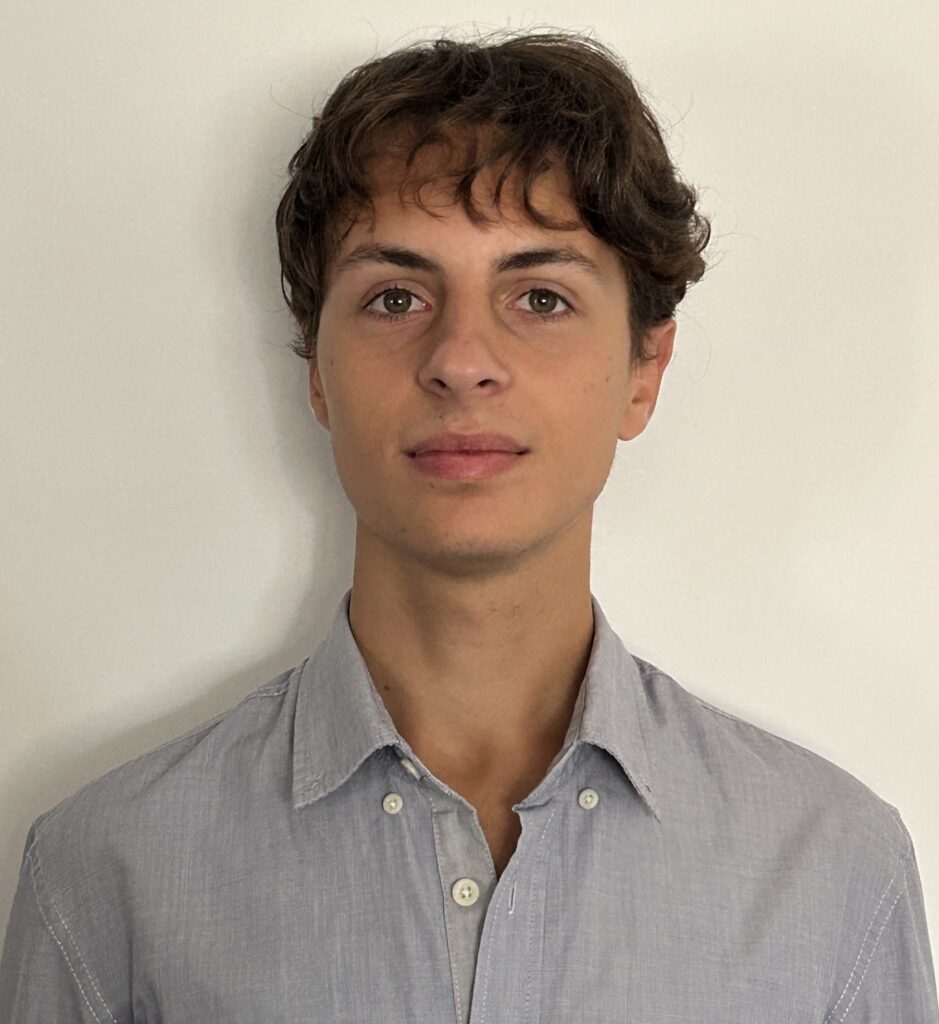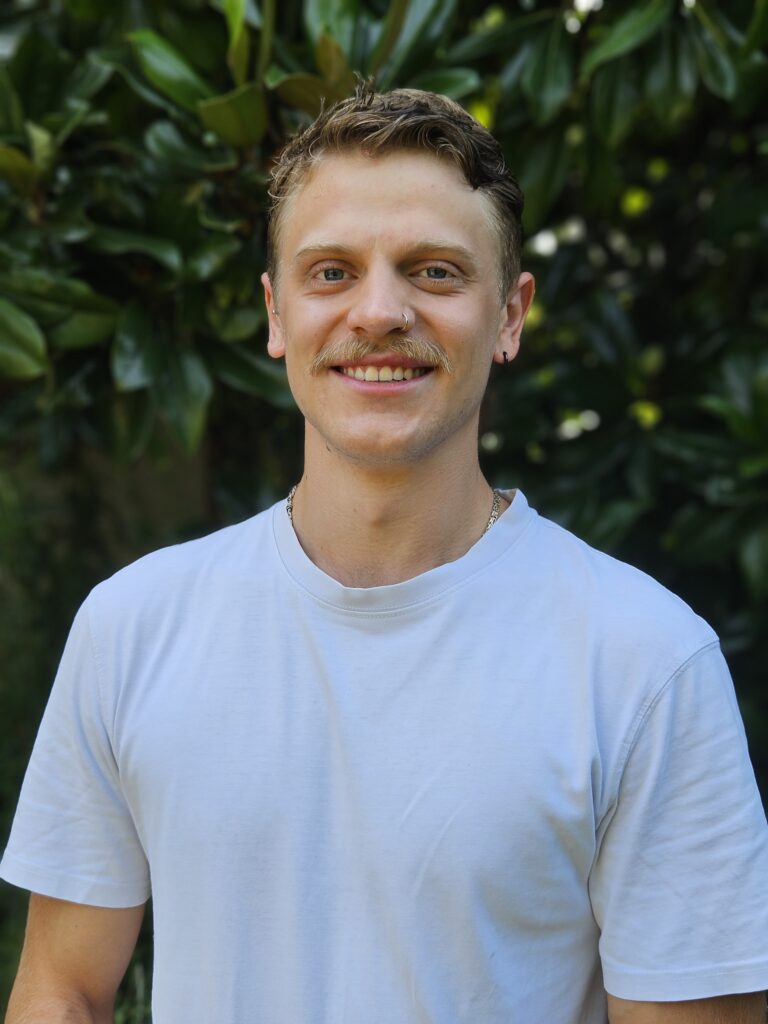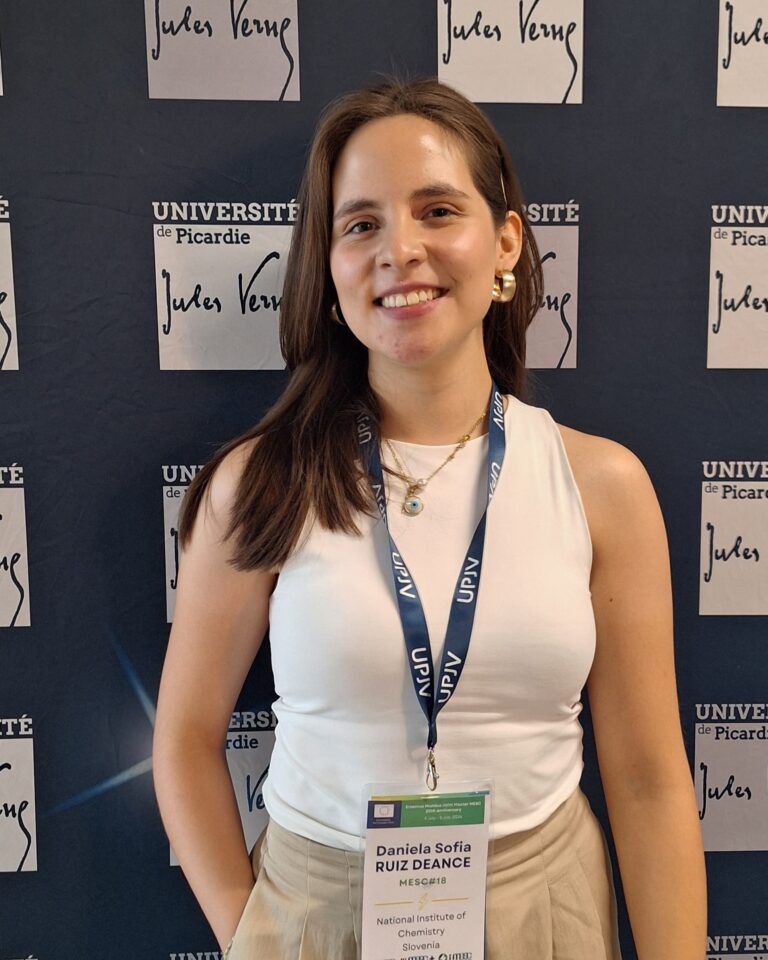RECRUITED DOCTORAL CANDIDATES (DCs)
DC01 - Valerio PRISCO - Université Claude Bernard Lyon 1

Valerio Prisco is an Italian PhD student in the RIDERS research and training programme. His research focuses on the synthesis of enhanced polymer electrolytes for future battery technologies. He holds both a Bachelor’s and a Master’s degree cum laude in Industrial Chemistry from Sapienza University of Rome, where he developed a strong interest in materials chemistry. In 2022, during his Bachelor’s thesis internship, he joined the research group of the Laboratory of Nanobiotechnology for Industrial Applications, at Sapienza University of Rome. During this experience, he worked on the enzymatic production of biodiesel using graphene oxide as a solid support for enzymes. In 2023-2024, for his Master’s thesis internship, he joined ENEA Research Centre (Italian National Agency for New Technologies, Energy and Sustainable Economic Development), collaborating with the research group of the Technologies and Materials for Additive Manufacturing laboratory, in Rome-Casaccia. During this experience, he focused on the preparation and characterization of a MOF/polymer composite material with applications for improving the energy efficiency of industrial drying processes.
DC02 - Yassine EDDAHANI - Grenoble Institute of Technology

Yassine Eddahani was born in Ben Guerir, Morocco in 1997. He obtained his bachelor’s degree in Industrial Process Engineering and Digitalization from Mohammed VI Polytechnic University, Morocco, in 2022. Afterwards, he was awarded an Erasmus Mundus Joint Master Degree (EMJMD) scholarship to study Materials for Energy Storage and Conversion (MESC+) in Politechnika Warszawska, Université Toulouse III – Paul Sabatier, and Universidad del País Vasco in Poland, France, and Spain, respectively. Throughout his master’s, he conducted a three-month internship at Institut des Matériaux Jean Rouxel (IMN) in France, on the confinement of ionic liquid in a polymeric host network for the preparation of Ionogels as polymer solid-state electrolytes for the next-generation lithium-ion batteries. Moreover, he conducted his master’s thesis at A.J. Drexel Nanomaterials Institute in the United States, where he developed compact lithium-ion batteries using highly conducive titanium carbide MXene as current collector film and binder. Within the RIDERS DN, he is joining the University Grenoble Alpes-INP for the DC02 position under the supervision of Pr. Renaud Bouchet. His research will focus on advanced characterization of interfacial reactivity and ionic charge transport in polymer electrolytes to enhance the performance of LMP batteries.
DC03 - Kiran ROY - Uppsala University

Kiran Roy is a PhD candidate in the RIDERS project at Uppsala University, focusing on the multiscale modelling of ion transport and interfacial phenomena in Li-metal polymer batteries. She holds a Master of Research degree in Chemistry from Nottingham Trent University, where she conducted research in computational chemistry. During this time, Kiran developed expertise in computational methods such as density functional theory (DFT) and molecular dynamics (MD) simulations. Her research addresses the electrochemical challenges in Li-metal polymer batteries, particularly in stability, surface decomposition, and ionic transport, contributing to advancements in energy storage technology.
Kiran is passionate about sustainability and is dedicated to developing innovative solutions for next-generation battery systems. In her free time, she enjoys exploring nature, staying informed about developments in renewable energy, and participating in scientific outreach initiatives to inspire young students in the fields of science and technology.
DC04 - Peng Xuan YU - Karlsruhe Institute of Technology

DC05 - Luca MONTESEL - Luxembourg Institute of Science and Technology

Luca Montesel is a recent graduate of the University of Trieste (Italy), where he completed the Master’s degree in Chemistry with a specialization in Organic Biomolecular Chemistry. He graduated with a thesis entitled “Synthesis and Applications of Cationic Amphiphilic Poly(amino ester)s as Degradable Carrier Materials,” which was conducted at the Johannes Gutenberg University of Mainz (Germany) under the supervision of Prof. Dr. Pol Besenius. During his time in the Besenius group, Luca gained extensive hands-on experience in the field of block copolymers, with a focus on organocatalyzed ring-opening polymerization (ROP) of N-acylated azacaprolactones. His expertise also extends to the study of the self-assembly behavior of amphiphiles in water.
With a keen interest in environmental issues and a background in industrial chemistry from his undergraduate studies at Ca’ Foscari University of Venice (Italy), Luca is strongly committed to developing solutions for the green transition. Leveraging his expertise in polymer science and his engagement in advancing energy technologies, he is actively involved in researching solid polymer electrolytes to address the challenges of the Net Zero Emission by 2050 agenda.
DC06 - Ivan DACREMA - National Institute of Chemistry

Ivan Dacrema began his journey in battery research and solid-state chemistry during his master’s internship in the Physical Chemistry group at the University of Sassari (Italy). His work primarily involved the electrochemical and structural characterisation of materials, originally developed for hydrogen storage, to assess their possible use as solid-state electrolytes. During this period, Ivan had the opportunity to spend a few months at the University of Pau (France) to conduct structural characterisation on solid electrolyte materials by means of X-ray photoelectron spectroscopy. The aim of the collaboration was to understand the degradation mechanisms induced by mechanochemical or electrochemical treatments. This experience deepened Ivan’s interest in material characterisation and in the chemistry of interfaces which led him to apply for DC06 position within the RIDERS project.
His work will focus on understanding the mass and charge transfer between single ion polymer electrolytes and the electrodes, as well as investigating the reactions happening at these critical interfaces. Ivan was immediately interested in the RIDERS project seeing the emphasis it gave to collaboration between different laboratories and looks forward to working alongside other colleagues, sharing knowledge and ideas to advance the understanding of this technology. This will be a great opportunity to build the knowledge and skills required to tackle the future technological challenges that await us.
DC07 - Rijul BAJAJ - Polytechnic University of Turin

DC08 - Zeen WU - Stockholm University

Zeen Wu studied Polymer Materials and Engineering at Jinan University in Guangzhou from 2016 to 2020. Afterward, he moved to Germany, where he completed a master’s degree in Polymer Science jointly offered by Technical University of Berlin, Free University of Berlin, Humboldt University of Berlin and Potsdam University, and finished in his master’s thesis at the Max Planck Institute of Colloids and Interfaces.
In 2024, Zeen joined Stockholm University as a PhD student within the RIDERS network, where his research focuses on nanoporous separators for sodium-ion batteries.
DC09 - Ishita BISWAS - Spanish National Research Council

Ishita Biswas is a researcher specializing in materials science and battery technology. Her work is focused on developing innovative solutions for high energy density sodium-ion batteries. She has a solid background in Physics and materials science and has made notable contributions to the field, particularly in sodium-ion battery technology. During masters at IIT Bombay, she optimized battery chemistry and electrode materials to enhance performance metrics such as cycle life, rate capability, and stability. She has also contributed to launching sodium-ion batteries with an impressive energy density in an organization working on automotive solutions. In addition to her achievements in sodium-ion batteries, Ishita has delved into various aspects of electrochemical energy storage. Her exposure in employing characterization techniques such as SEM, XRD, etc. has been crucial in advancing the research and optimizing material performance.
Currently, Ishita is driven by the goal of solving the challenges in high energy density batteries. Her research aims to explore cathode materials dedicated for sodium-ion batteries.
When not working on batteries and chemicals, Ishita enjoys photography, travelling, and cooking.
DC10 - Sofia RUIZ-DEANCE - IFP Energies Nouvelles


